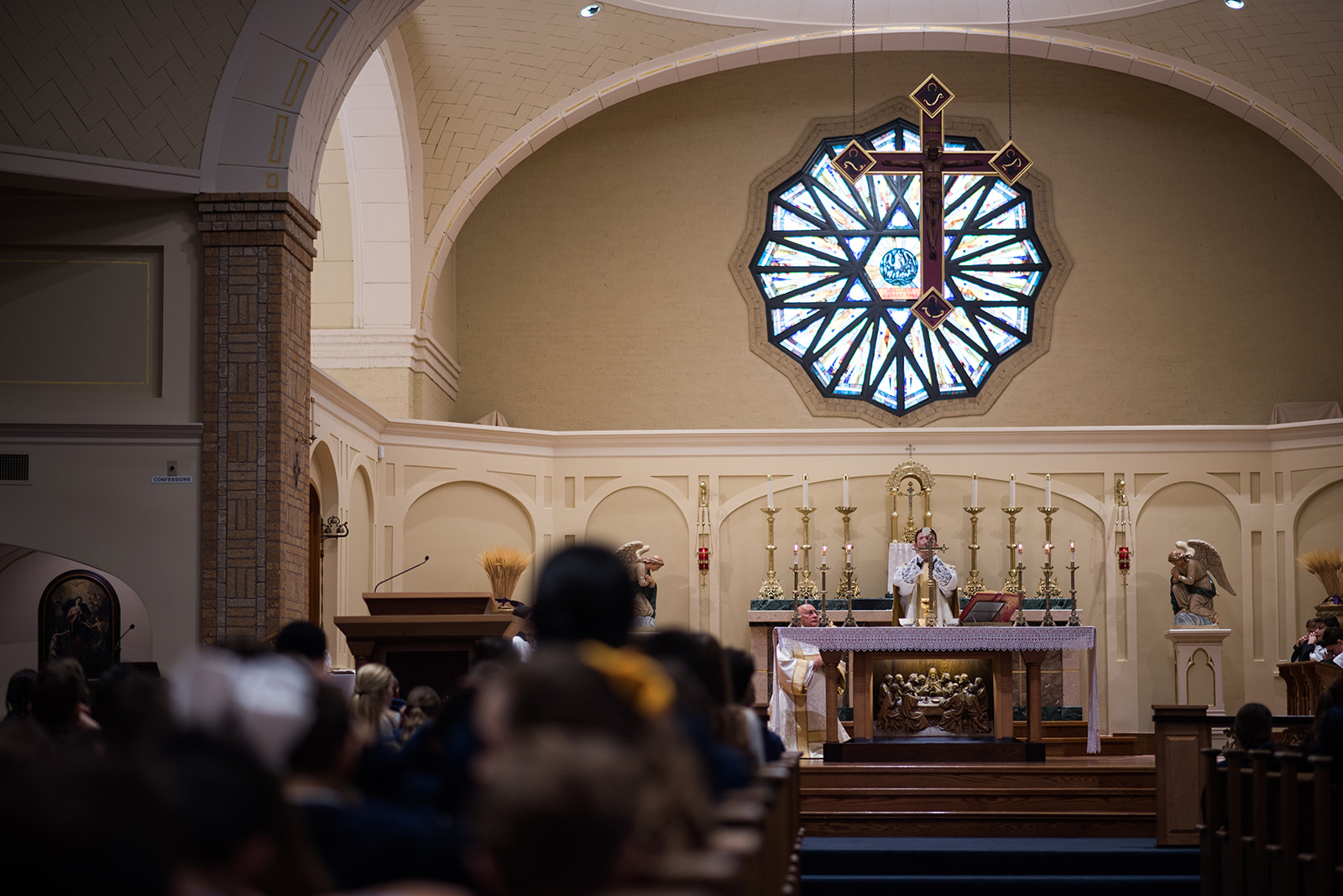Sacraments
Sacraments
At St. Bernard Catholic Church, the seven sacraments are at the heart of our spiritual life, marking sacred moments where we encounter Christ and receive His grace in a tangible way.
Rooted in Scripture and celebrated through the life of the Church, the sacraments accompany us from birth to eternal life—strengthening, healing, and nourishing us along the journey of faith.
Whether you’re preparing for Baptism, seeking the healing of Reconciliation, or approaching the altar for Matrimony, we are here to walk with you every step of the way.
We invite you to explore each of the sacraments and learn how you or your loved ones can prepare to receive them here at St. Bernard.



